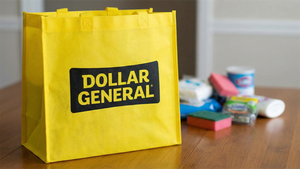DENVER, Oct. 30, 2025 (GLOBE NEWSWIRE) -- U.S. sales of beer, wine and spirits continue to fall as more Americans seek to moderate their alcohol consumption. The shift away from alcohol, driven largely by younger generations for health and economic reasons, has given rise to a rapidly growing market for non-alcoholic beer, wine and spirits beverages and an influx of new product offerings.
According to a new report from CoBank’s Knowledge Exchange, non-alcoholic beverages have proven to be one of the more resilient segments of the beverage industry and the market shows strong growth potential. Rising sales have prompted traditional adult beverage manufacturers and new market entrants to sharpen their focus on non-alcoholic beer, wine and spirits and increase their investments in the category.
“The trend toward non-alcoholic beverages and their rapid growth in sales is prompting considerable innovation in the space,” said Billy Roberts, food and beverage economist with CoBank. “Beverage producers in the consumer-packaged goods space are introducing options with novel sensory experiences that can stand on their own, rather than simply mirroring alcohol-based counterparts.”
Declining alcohol consumption is not unique to the U.S. In 2024, global wine consumption fell to its lowest level since 1961, according to the International Organisation of Vine and Wine. In the U.S. alone, wine consumption fell by 5.8% in 2024. More broadly, volume sales across all alcoholic segments continued to erode in 2025, as noted in NielsenIQ's “The Halftime Report.”
Meanwhile, virtually all alcohol beverage categories have seen competitors enter the market offering low-alcohol or non-alcoholic beverages, with beer alternatives proving most successful. Non-alcoholic beer purchases among U.S. buying households increased 22% from December 2023 to November 2024, according to consumer research firm Circana. And while the market size of non-alcoholic wine may pale in comparison to other adult beverages, it registered a 41% increase in dollar sales in 2024.
Nearly half of Americans are trying to drink less alcohol in 2025, with the number markedly higher among younger generations. According to data from NCSolutions, the level of interest in sober-curious lifestyles has increased 44% in the last two years and a quarter of American adults report drinking no alcohol in 2024. Avoiding or limiting alcohol is not entirely borne of an interest in avoiding mood-altering beverages. Instead, consumers appear much more motivated by economic and wellness reasons.
Alcohol out, cannabis in
While alcohol use continues to decline, cannabis consumption is rising and the market for cannabis-infused beverages shows significant potential. U.S. sales of cannabis beverages are projected to reach $2.8 billion by 2028. That remains small compared to the U.S. market for alcoholic beverages. However, growth rates for the two product categories differ considerably. Cannabis beverages have a projected compound annual growth rate of 16.9% through 2028, while at-home alcoholic beverages are expected to have a CAGR of 2.4% through 2030.
The drivers for cannabis drinks varies by generation. Millennials and Gen Z have led the trend, citing the options as a lower-calorie and “more-natural” alternative to alcohol, as well as the ability to consume cannabis in a format such as a seltzer or tonic. For older consumers seeking relaxation or a medical benefit, cannabis beverages offer an appealing alternative to more traditional consumption methods. But headwinds including a higher price point remain a challenge for cannabis-infused drinks.
Nonetheless, Roberts said continued growth is likely and will be fueled by further advancements in flavor varieties and different formulations. “Alcoholic drinks will continue to fight for share not only with non-alcoholic iterations of familiar bar favorites, but also with an increasing array of cannabis-infused beverages positioned to offer benefits ranging from stress relief and enhanced sleep to fitness recovery.”
Watch a video synopsis and read the report, What’s Replacing Alcoholic Beverages?
About CoBank
CoBank is a cooperative bank serving vital industries across rural America. The bank provides loans, leases, export financing and other financial services to agribusinesses and rural power, water and communications providers in all 50 states. The bank also provides wholesale loans and other financial services to affiliated Farm Credit associations serving more than 78,000 farmers, ranchers and other rural borrowers in 23 states around the country. CoBank is a member of the Farm Credit System, a nationwide network of banks and retail lending associations chartered to support the borrowing needs of U.S. agriculture, rural infrastructure and rural communities. Headquartered outside Denver, Colorado, CoBank serves customers from regional banking centers across the U.S. and also maintains an international representative office in Singapore.

Corporate Communications CoBank 800-542-8072 news@cobank.com





